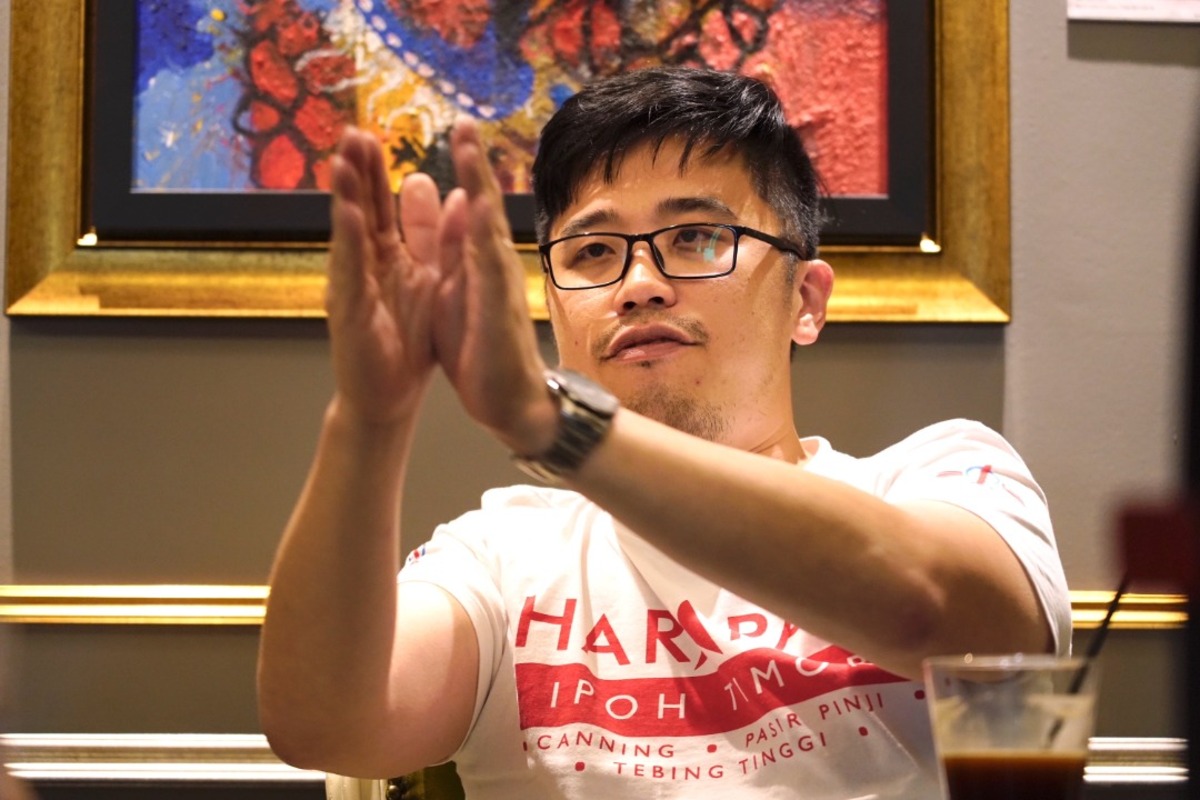IPOH, Nov 18 – Despite a non-communicable disease (NCD) crisis, only a little more than one in 10 low-income Malaysians have taken up free health screenings offered by the government’s Peka B40 programme.
However, Howard Lee Chuan How, Pakatan Harapan’s (PH) candidate for Ipoh Timor, said the Peka B40 health screening programme was popular in the federal constituency that he is currently running for as MP in the 15th general election, including in his previous state constituency of Pasir Pinji that is under Ipoh Timor.
The 39-year-old described elected officials as “community leaders” who can talk to people and get them to participate in a public health campaign.
“I’m gonna be brutally honest here. I think Peka B40, as an initiative, and kudos to ProtectHealth, it’s a very good initiative. It is something that I’ve participated in as an ADUN (state assemblyman), facilitating such an initiative to be carried out in my constituency,” Lee told CodeBlue in an interview here last Monday.
ProtectHealth Corporation is a company that is fully-owned by the Ministry of Health (MOH).
“I paid for the venue, I got ProtectHealth in. There was this massive health care screening day and uptake was fantastic,” Lee added.
“But it required the elected official in that constituency – at that time, it was the MP [Wong] Kah Woh, and myself as the ADUN to go and drive that. I think, to be completely frank, we didn’t really have an uptake problem in the Kinta Valley.
“Because Canning, which is one of the DUNs (state constituency) under Ipoh Timor, also had a well received session, including in Batu Gajah.”
Data available on ProtectHealth’s website shows that only 12.4 per cent, or 737,351 people, of 5.9 million eligible Malaysians have been screened under the Peka B40 scheme, despite the health screenings being fully subsidised by the government.
Perak’s uptake rate is about 14.52 per cent, higher than the national average, but lower than Melaka (14.95 per cent), Sarawak (15.31 per cent), Negeri Sembilan (15.68 per cent), Perlis (18.33 per cent), Kedah (19.41 per cent), and Kelantan (19.83 per cent).
Peka B40 was first introduced by the-then PH government in 2019 for early detection of chronic conditions and early intervention among the lower-income population.
Health advocates have said that Malaysia is currently experiencing an NCD crisis. The National Health and Morbidity Survey 2019 findings indicated that 3.9 million adults lived with diabetes, 6.4 million had high blood pressure, and eight million with high cholesterol. Around 1.7 million Malaysians had all three chronic conditions.
About half of adults in Malaysia are overweight or obese. NCDs accounted for 67 per cent of premature deaths, and 70 per cent of diseases.
Former ProtectHealth Corporation CEO Anas Alam Faizli previously said that the top three NCDs among the bottom 40 per cent of income earners (B40), based on those who had been screened at end March, were hypertension at 29.8 per cent, high cholesterol (29.2 per cent), and diabetes (19.8 per cent).
The screening is a prerequisite for other benefits offered under Peka B40, which include health aid of up to RM20,000 to buy medical equipment, as well as incentives worth RM1,000 each for transport to MOH hospitals and for completing cancer treatment respectively.
“ProtectHealth’s PekaB40 is one way of getting into the reports, to inject interventions by doing screenings, et cetera, and unlocking the benefits and privileges of being part of B40, you’re tackling it (NCDs) directly.
“So if you solve the uptake issue, you solve the NCD crisis, theoretically,” Lee said.
“I think I’ll be fair. I think the elected official needs to participate in this and be a driver because unfortunately, and I stress the word’ unfortunately’, elected officials are still community leaders.
“We are not just policy people. We are not just Dewan people, parliamentarians, but we’re also community leaders. We wear several hats and quite often, some of these will require community leaders to lead the community into participating,” Lee said.
On the part of ProtectHealth, Lee, who is also a DAP central executive committee member, said the company needs to reconsider its approach to better communicate with the public.
“For all my congratulatory notes, verbally as well as by actually participating, I think ProtectHealth and the Ministry of Health really need to look at the communications behind it – how it galvanises and mobilises and taps into the cooperation of wakil rakyat and the public, how it may be lack in engagement with local NGOs, local welfare organisations, to really harness the energies, harness the power of the community, to get the community to participate.
“Whether it’s a propaganda problem, whether it’s an operational problem, whether it’s a resource problem, whether it’s a strategic problem, whether it’s a tactical problem, all these I’m not in a position to comment, but I’m saying there is a problem.
“That uptake is often not just about the community not wanting to participate; it’s about the mechanisms to drive uptake,” Lee said.
“There’s a problem with that because the end result is low uptake. I’ve done my part. I would like to continue to do my part and I think PH (ProtectHealth), not Pakatan Harapan or well, Pakatan Harapan as well, a PH-led PH (Pakatan Harapan-run ProtectHealth) will likely look into the mechanisms on how to drive uptake because this is good.”








